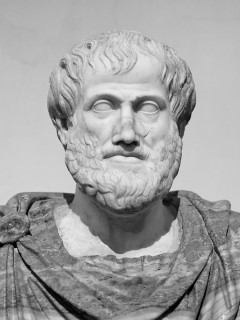
Publication details
Year: 2003
Pages: 429-461
Series: Synthese
Full citation:
, "All brutes are subhuman", Synthese 134 (3), 2003, pp. 429-461.


All brutes are subhuman
Aristotle and Ockham on private negation
pp. 429-461
in: Synthese 134 (3), 2003.Abstract
The mediaeval logic of Aristotelian privation, represented by Ockham's expositionof All A is non-P as All S is of a type T that is naturally P and no S is P, iscritically evaluated as an account of privative negation. It is argued that there aretwo senses of privative negation: (1) an intensifier (as in subhuman), the dualof Neoplatonic hypernegation (superhuman), which is studied in linguistics asan operator on scalar adjectives, and (2) a (often lexicalized) Boolean complementrelative to the extension of a privative negation in sense (1) (e.g., Brute). Thissecond sense, which is the privative negation discussed in modern linguistics, isshown to be Aristotle's. It is argued that Ockham's exposition fails to capture muchof the logic of Aristotelian privation due to limitations in the expressive power of thesyllogistic.
Cited authors
Publication details
Year: 2003
Pages: 429-461
Series: Synthese
Full citation:
, "All brutes are subhuman", Synthese 134 (3), 2003, pp. 429-461.

